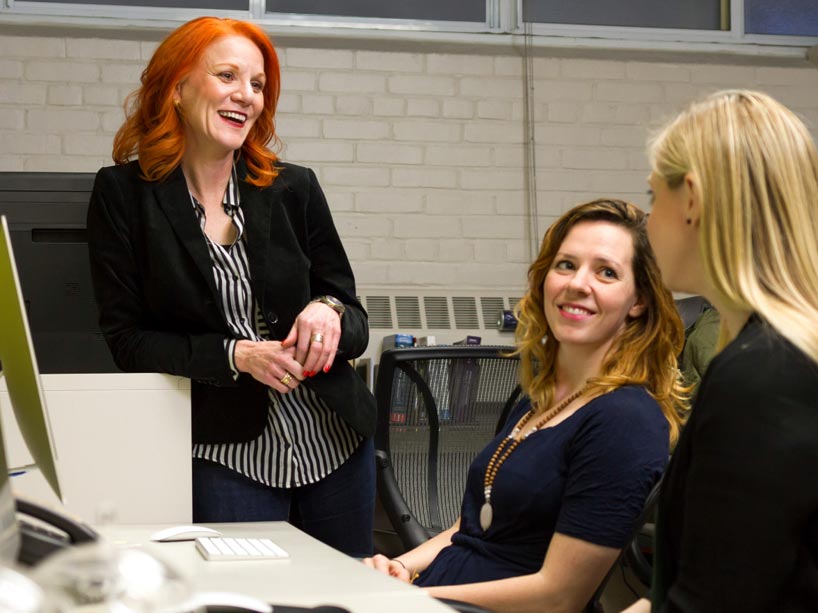Research that heals

At the Ryerson Awards ceremony, April 1, Candice Monson will receive the Knowledge Mobilization and Engagement Award for her significant contributions to the understanding and treatment of PTSD.
Post-traumatic Stress Disorder (PTSD), which affects about nine per cent of Canadians, is a debilitating condition that can occur in people who have experienced or witnessed a traumatic event, such as a serious accident, sexual violence or combat. People with PTSD may experience intense, disturbing thoughts and feelings that can last long after the traumatic event has ended.
On April 1, at the Ryerson Awards, psychology professor Candice Monson will receive the Knowledge Mobilization and Engagement Award for her groundbreaking work in the research and treatment of PTSD – work that has been inspired by those suffering from the condition.
“Early in my graduate career I started providing treatment for veterans and victims of violence,” she said. “The experience of listening to people tell their harrowing stories and watching people overcome those experiences – and in many cases become stronger, grittier, more textured, nuanced, wiser – was very compelling, it still is.”
Inspired by those experiences, Monson developed innovative treatments – for both individuals and couples – that addresses the original cause of the problem.
“They’re called trauma-focused treatments, which means we are taking patients back to what happened so they can digest those memories and move forward. So we’re moving backward to go forward,” explained Monson. “We’re going after the cause not trying to manage the symptoms. That’s a major innovation.”
One of the symptoms of PTSD is that sufferers feel their traumatic memories are unsafe and must be avoided. “Overcoming the avoidance is really important,” said Monson. “So the structure in these treatments, which are very systematic, helps both the clinician and the client to stay focused on overcoming the avoidance that keeps PTSD alive.”
When she arrived at Ryerson nearly 10 years ago, Monson noticed a gap between the research trial work she was doing and its distance from PTSD sufferers in the community.
“It doesn’t matter if I build a great treatment if no one gets it,” she said. “That realization pivoted my work to a more grass roots goal of ‘how do we get these treatments out to the community,’ and working with clinicians to help them learn how to use them.”
Monson is pursuing a multi-level approach to improve access to her treatments. She has published two books for clinicians outlining the therapies, and is developing an online program that will use technology to take the treatments directly to those who need them.
“I’ve been helping to develop an individual treatment that is delivered online and facilitated by a therapist, and I’m currently developing an online, guided intervention for couples.”
The individual online treatment will be delivered in collaboration with CBT Associates, a corporate partner, and the couples therapy program was recently funded by the Canadian Forces.
“We’re in the throes of completing video demonstrations that will be web streamed, and developing interactive exercises and messaging that will go on the online platform.”
Monson’s early training with veterans and sexual assault victims continues to inform her work. “I did my pre-doctoral internship with American veterans at the VA Hospital in Boston, and I was a rape crisis volunteer responding in emergency rooms in the acute period after a sexual assault,” she recalled. “Sitting with people you learn a lot about the resilience of humanity.”
Ryerson Awards Night – part of the larger Ryerson recognition program co-ordinated by Human Resources – celebrates the achievements of faculty and staff in teaching, research, administration, service and leadership, honouring 68 individual recipients and six teams. This year’s event takes place on April 1, 2019. To learn more about all the award winners, visit Recognition and Awards.